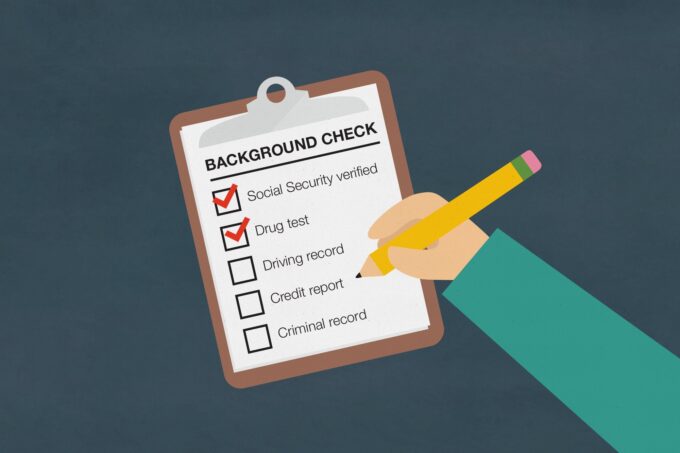Rental properties are undoubtedly a lucrative investment. But managing them require effort and time, including selecting the best tenants for your property. Once you choose the wrong tenants, it can create more drama and work or cost you more money over time.
To successfully find the best tenants for your rental properties, you should know your legal obligations and what to search for. Often, a tenant screening process is challenging as it works like you’re assessing risks. To make the process easy, here are the ways to screen potential tenants for your rental property:
Determine Your Tenant Criteria
Setting particular criteria will help you avoid issues, including missed or late payments, eviction, criminal activity, and neighbor complaints. Some of the criteria examples are:
- Proof of employment;
- Healthy credit history;
- Minimum credit score;
- Clean background check;
- Ability to pay the rent; and so on.
There are also particular criteria that can help you be more flexible. For instance, if your potential tenants have no credit, red flags on the credit report, or have a low credit score, you may still consider them as long as they have a co-signer on the lease agreement.
Request And Review Applications
Whether you’re a seasoned or new landlord, request applications from potential tenants so you can learn more about them and get the necessary information to run a background and credit check. The application must also include the following:
- Applicant’s personal details, such as name, contact information, license number, date of birth, and social security number;
- Income and employment information;
- Applicant’s former addresses;
- Personal references; and the like.
Select which tenants you want to screen from the applications for further consideration. Before you pull a potential tenant’s credit or perform a background check, you should get their consent. If possible, get it in writing for record purposes.
Pre-Screen Tenants In Your Listing
Creating a well-detailed listing can help potential tenants if they’re qualified to rent or want to rent it. This may give you an idea about the things you can expect from the tenants too.
Including more details in your rental listing will allow you to quickly screen potential tenants who aren’t qualified or opt for those who can accept your policies as well. Once tenants see such details in your listing, they can decide to check your property or find another one more suitable for their needs.
Aside from describing your property, including the amenities, a number of bathrooms, and rooms, you might want to disclose these requirements:
- Background check;
- Security deposit amount;
- Monthly rent;
- References from past landlords;
- Credit report and rental application fee; and others.
Nonetheless, make sure your listings are clear and straightforward. A quality listing will help you attract quality applicants.
Perform Criminal Background And Credit Check

When doing a credit check, you should look beyond the credit score to determine and get great tenants. You’d also want to use the credit report to confirm whether or not the applicants provided the correct personal details. A credit report will uncover if the tenants have present or previous financial problems, including missed or late payments, too much debt, or bankruptcy.
Depending on the details included in the credit report, you can decide to deny the tenants or move forward with them but you’ll require a co-signer and a high deposit. If you have preferred tenants in mind yet are worried about their credit history, it may help to ask them to explain the discrepancies. This way, you can make a well-informed decision you won’t regret.
A criminal background check can help determine if potential tenants will put the neighborhood or your property at risk for criminal activities, such as theft or violence. And it may help you improve tenant retention and avoid complaints or penalties due to tenants’ criminal activities within your property. This kind of background check will reveal criminal and eviction records as well.
Verify Information
Even if you might have received rental applications, it’s just the start of the screening process. You still have to verify various details. There are many ways to do this, and it can be done through the following:
- Identity Verification – You want to ensure your applicants are accurately representing themselves. With that in mind, request valid IDs like a driver’s license.
- Employment Verification – Ask for documents to prove the potential tenant’s present and past employment. Contacting such references may help you verify that applicants are employed and aren’t lying about their rental applications.
- Residence History – When checking the residence history, there are several things to remember, including feedback from previous landlords, past evictions, and the length of other residencies. All this information can be critical to learn how the tenants behave as a tenant.

- References – You may request references to learn about the tenants’ backgrounds. References may range from close friends, family members, and co-workers. They’ll also give you a better feel for the applicants.
- Income – When assessing tenants, you must watch out for their monthly income. You might want to know if they can afford the rent, pay it consistently, and pay a security deposit.
You can verify other things related to your potential tenants depending on your criteria. For example, you can ask if they have pets.
Comply With Fair Housing Laws
To run a compliant rental property, you must follow local, state, and federal housing laws. Even well-meaning landlords may sometimes deal with fair housing law complaints that can be expensive. To prevent complaints, stay updated with the rules and regulations in your state.
Generally, fair housing laws state that you can’t deny or screen tenants based on the following discriminatory classes, such as:
- Sex;
- Disability;
- Familial status;
- Color;
- National origin;
- Race; and the like.
Understanding these laws will help you create a better rental listing. However, you can’t advertise preferences for particular types of tenants. For example, you can’t state that you’re searching for a young couple or advertise your rental properties in another exclusionary manner. Your rental listing must focus on the amenities and unit and not use discriminatory language.
Your requirements for the tenant screening process must be consistent for all applicants. Your late fee rule or income requirement, for instance, must not change based on who’s applying.

You must comply with reasonable accommodations for disabled applicants, should they need accommodations. You can’t end a tenancy for discriminatory reasons when you’ve signed a lease agreement.
Conclusion
Selecting the best and right tenants will help you prevent unhappy neighbors, payment problems, and other concerns that may arise with leasing rental properties.
Follow the abovementioned guide when screening tenants but be sure to customize your plan to the risks you want to take and the goals to achieve. Whatever process and criteria you choose, consider documenting the screening process, stay consistent, and consult a lawyer for legal-related questions.










